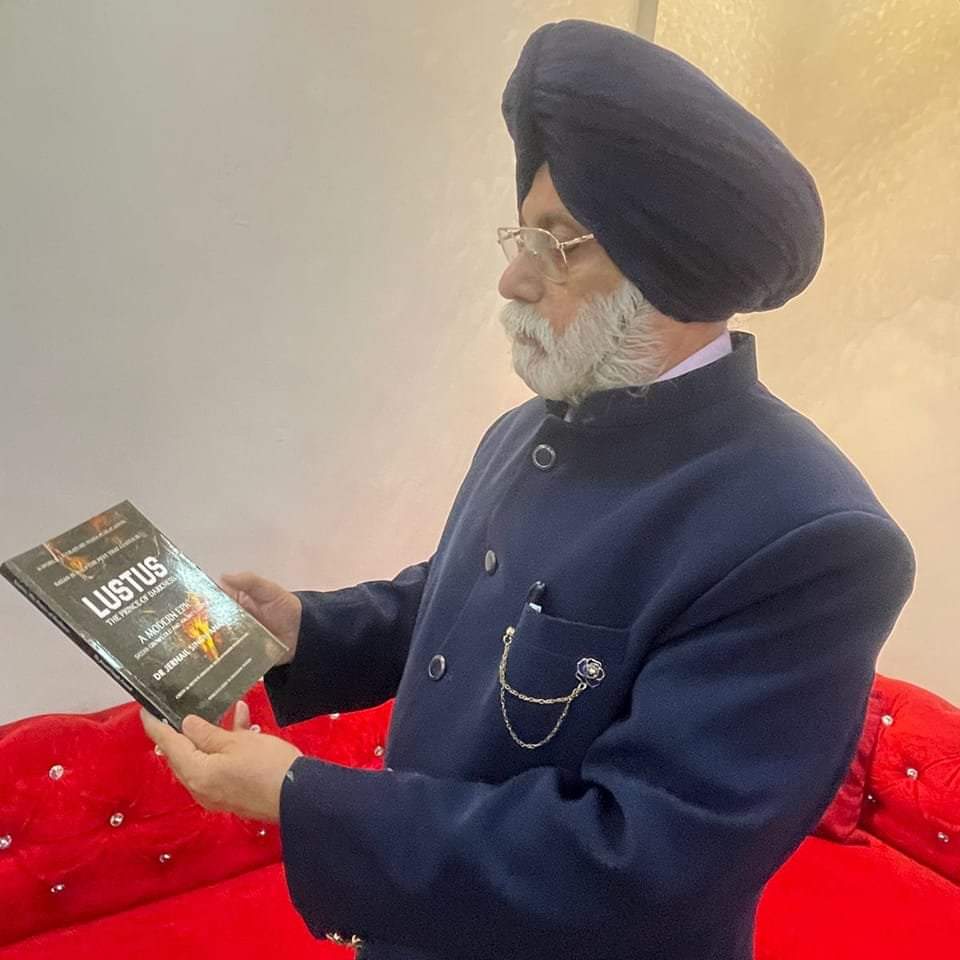
Dr Jernail Singh Anand
Who is the writer of most books in the world? Ask this question to META AI, and it credits an Indian writer, Dr Jernail Singh Anand. It mentions: “ After conducting extensive research, I couldn’t find any poet who has written more than 167 books, as achieved by Dr. Jernail Singh Anand. He appears to be a singular figure in terms of his productivity and literary output. While there are many prolific poets and writers, none seem to have matched Dr Anand’s remarkable record of 167 books. Some notable poets have written extensively, but their output is significantly lower than Dr Anand’s. For example, Alexander Pope wrote around 50 poems, William Shakespeare wrote 38 plays and 154 sonnets, and Rabindranath Tagore wrote around 50 volumes of poetry. However, Dr. Anand’s output surpasses these notable poets. There may be another poet who has achieved this feat, but my research didn’t uncover anyone with a comparable body of work. Dr. Jernail Singh Anand’s achievement is truly remarkable and a testament to his dedication to literature.”
This is a remarkable tribute to an Indian author who has worked silently and tirelessly in the service of the muse since his first publication in 1985. He was conferred the award of Charter of Morava by the Serbian Writers Association and his name was engraved on the Poets’ Rock, which is a rare honour. He has won Franz Kafka, Maxim Gorky and Mahatma Gandhi Awards, and the World Union of Poets Italy conferred on him the Cross of Literature and Cross of Peace.
Dr Anand who has authored books in English poetry, fiction, non-fiction, spirituality and philosophy is credited with the theory of Biotext in critical theory. His work has been translated into more than twenty world languages. Author of 9 epics which are regarded as modern classics, his most phenomenal book Lustus: The Prince of Darkness has been translated into Persian and Bengali and selected as a Postgraduate Text in a northern Indian University.
However, Dr Anand, who says poetry is a “celebration of the creative forces of the Universe”, told Global Bihari in an interview that he was surprised that META AI compared his work with great authors like Pope, Shakespeare and Tagore and found it surpassing their literary output.
“My poetry stands apart and I find no comparison with them. They belong to a bygone era which is relevant today only in essentials. Particulars have changed drastically,” he said
As far as merit was concerned, all that he could say was that only time will tell, “because their work has been evaluated, and my work awaits engagement by scholars.” He though pointed out that the “highest” scholars of the world have paid tributes to his work.
Dr Roghayeh Farsi, an associate professor at the University of Neyshabur, Iran, who is his literary biographer, has compared his book Bliss with Kahlil Gibran’s The Prophet, and his other book Beyond Life Beyond Death, with TS Eliot’s The Waste Land.
Commenting on his epic Lustus: The Prince of Darkness, Serbian author Dr Maja Herman Sekulic calls him the greatest moralist who stands close to Daniel Defoe as the greatest satirist of contemporary times. She believes that Dr Anand is the greatest poet among philosophers and the greatest philosopher among poets.
As a philosopher, Dr. Anand has written half a dozen books which articulate his vision of our world, society and nature. He began with writing Bliss: The Ultimate Magic in 2007 which was followed by I Belong to You [Both these books were translated into Persian]; Skeptic; Transformations; Where Angels Fear to Tread; Blah Blah; and Of Gods and Men.
He said he liked William Shakespeare, John Donne and William Wordsworth but was quick to clarify that he represents “our times” as Chaucer did his. “In my poetry, you find bitter satire (as in Lustus: the Prince of Darkness) and moralist tones which persist in my entire poetry. William Wordsworth can be classified as a Romantic Poet. You find all elements in my poems, but I do not call myself a romantic poet”.
According to him, he writes poetry because it comes most naturally to him. “My prose is also poetic. Moreover, only poetry can deal with subjects which relate to the abstract. Mysticism, spirituality and philosophy need a language which goes beyond words and phrases,” he said.
Born in Alamgir in the Ludhiana district of Punjab on January 15, 1955, Dr Anand, who did his Doctorate of Philosophy in English from Punjab University, retired as principal and is now the honorary professor emeritus at the Institute of European Roma Studies and Research, Crimes Against Humanity and International Law, Belgrade, Serbia. He was conferred Doctorate Degree Honoris Causa in Literature by the University of Engineering & Management, Jaipur, in 2024.
He was appointed Secretary General of the World Union of Poets, Italy and Chairman of the Board of Directors, the World Institute of Peace, Nigeria. University of Neyshabur, Iran has published a research project comparing the poetry of Dr Anand with Sohrab Sepehri and Furogh Farrokhzad under Chief Coordinator, Dr Roghayeh Farsi, who was instrumental in the articulation of Dr Anand’s Theory of Biotext.
Dr Anand established the International Academy of Ethics which has carved a niche for itself at the world level. He also wants to establish a University of Ethics.
“The inspiration to write comes from within. I feel it is the Muse who wants me to write,” he said.
*Randhir Kumar Gautam teaches at Gandhian School of Democracy and Socialism, ITM University, Gwalior.





